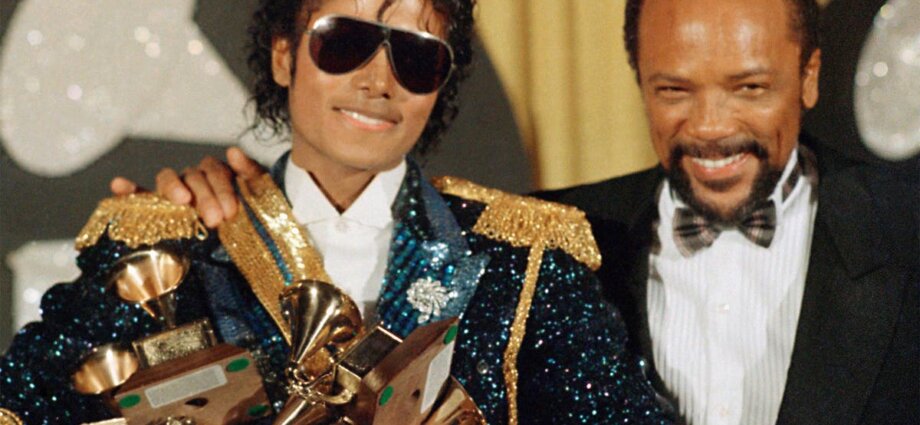From Thriller to Bad, the late Quincy Jones proved an integral driving force behind some of Michael Jackson’s most iconic records.
An immensely versatile producer, who won a total of 28 Grammy Awards, Jones worked with musicians ranging from Frank Sinatra, to Count Basie, Celine Dion, Diana Ross, Aretha Franklin, and Ray Charles.
Arguably the most famous of his collaborations, however, was with Jackson whom he first met when the singer was just 12 years old at the home Rat Pack icon Sammy Davis Jr.
In a 2021 interview with The Hollywood Reporter, Jones recalled Jackson telling him: “I need you to help me find a producer. I’m getting ready to do my first album.”
From that chance meeting came one of music’s most fruitful partnerships, with Jones going on to produce Jackson’s first solo album Off the Wall in 1979, featuring hits such as the iconic disco bop “Don’t Stop ‘Til You Get Enough”.
He also produced 1982’s Thriller, which remains the highest-selling album of all time, and 1987’s Bad.
In a 2014 interview, Jones reflected on the fun times they shared making those albums.
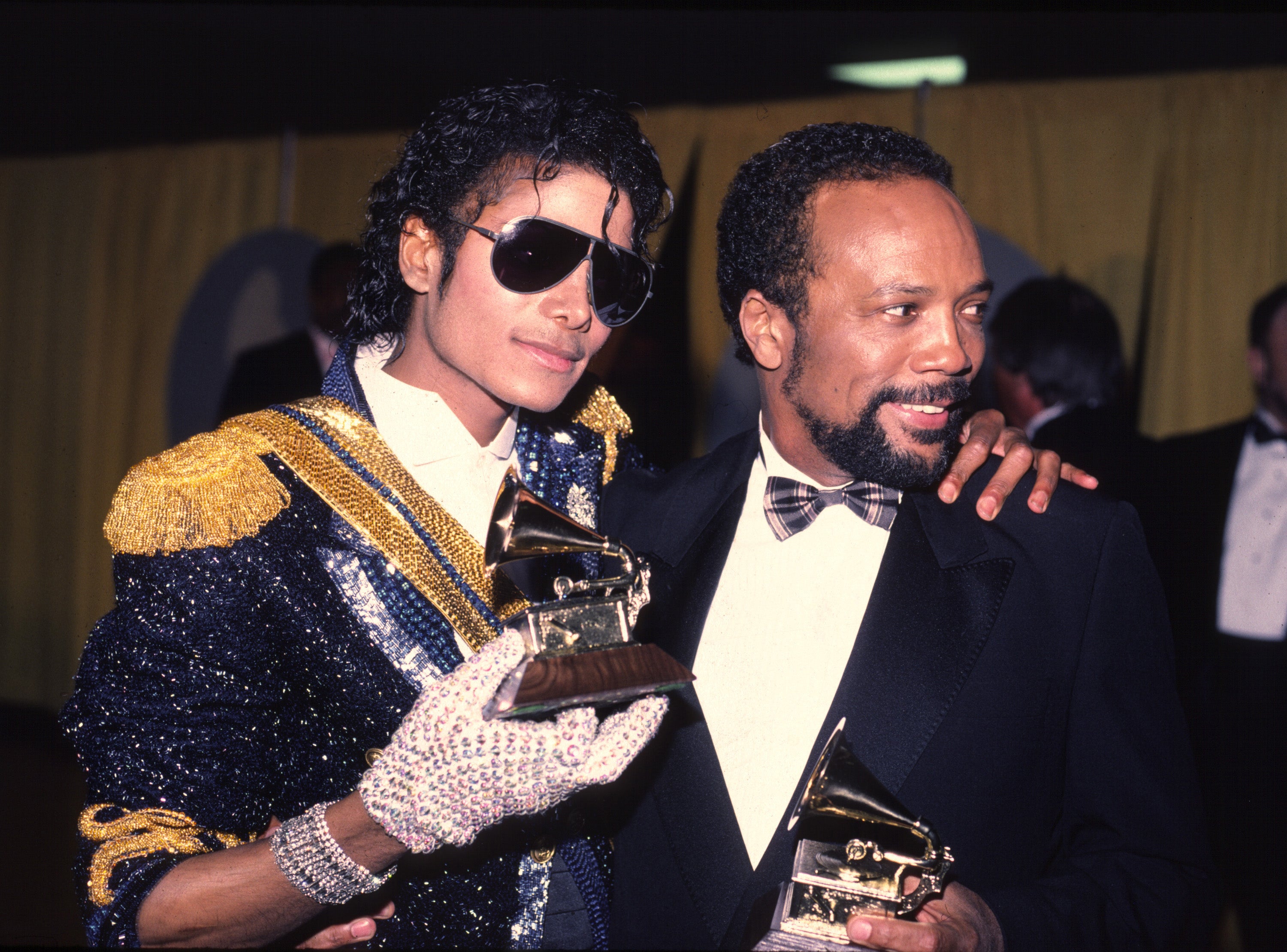
“It was as loose as you can get!” he told The Guardian. “We’d be joking and having fun. Are you kidding? You gotta know how to party. If you get uptight, the music’s going to sound like nothin’. I used to say, ‘Always leave a little room for God to walk in the room.’”
He also recalled how Jackson had brought his pet snake, Muscles, into the studio. “He wrapped himself around my leg,” said the producer.
The duo, however, fell out after making Bad because – Jones later said – Jackson felt he was old and out-of-touch.
Enjoy unlimited access to 100 million ad-free songs and podcasts with Amazon Music
Sign up now for a 4 month free trial (3 months for non-Prime members)
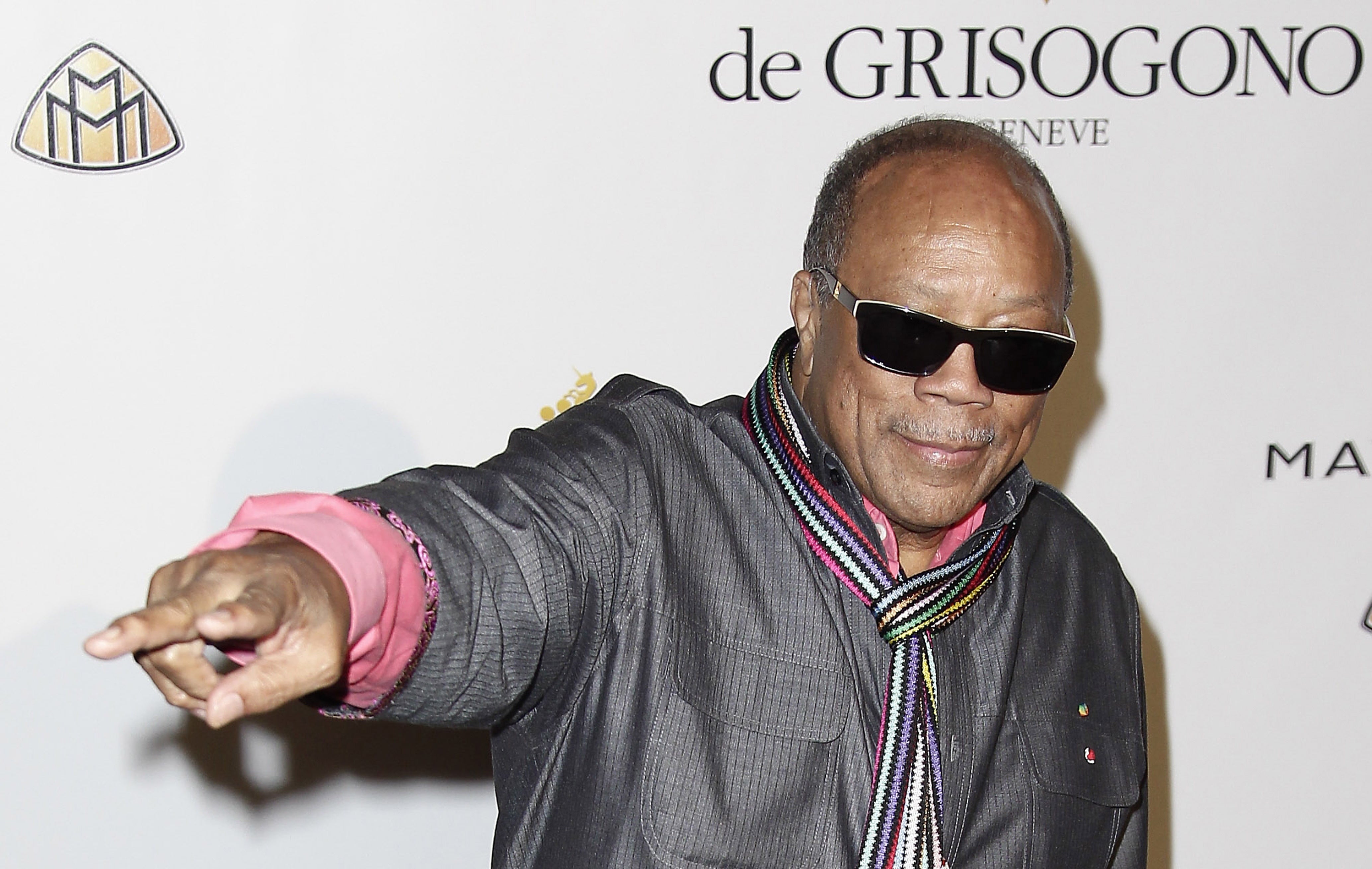
In the wake of Jackson’s death in 2009, Jones wrote an op-ed for The LA Times, in which he said that he was “devastated by the news that Michael Jackson had suddenly left the room”.
He went on to praise his successful protege as “a different kind of entertainer. A man-child in many ways, he was beyond professional and dedicated”.
Together, Jones said, “we shared the Eighties, achieving heights that I can humbly say may never be reached again”.
“There will be a lot written about what came next in Michael’s life, but for me all of that is just noise,” he continued. “I promise you in 50, 75, 100 years, what will be remembered is the music.”
In July 2017, Jones won a lawsuit against Jackson’s estate for $9.4m in damages for unpaid royalties, largely from the concert film This Is It – which was released after Jackson’s death in 2009.
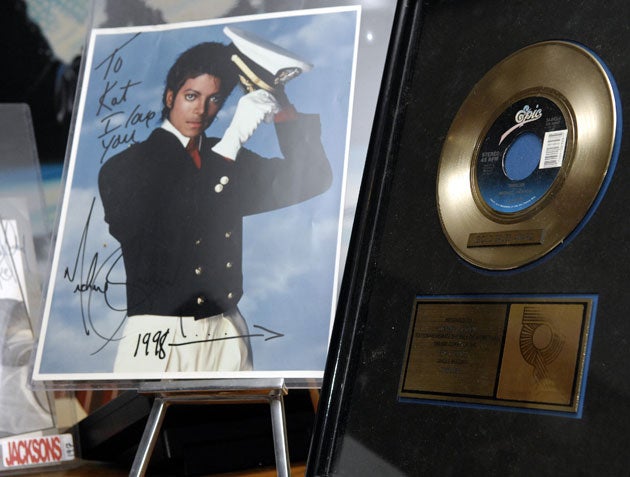
In a statement, Jones said the suit “was never about Michael,” and told The LA Times that it wasn’t about the family either. “The family wants to do business with me,” he said, placing the blame instead on the lawyers for Jackson’s estate.
At the time, Howard Weitzman, who represented the estate, said: “Mr Jones wasn’t cheated out of any money because he was paid what he was contractually owed for producing the songs recorded by Michael 25 to 30 years ago that were used in the documentary This Is It, which he had nothing to do with.”
In 2020, Jones lost on appeal and had to return $6.8m.
The real trouble, however, began in 2018 owing to an interview Jones gave to Vulture magazine, in which he accused Jackson of “stealing” songs.
Asked whether there was anything that people don’t understand about Jackson, Jones said: “I hate to get into this publicly, but Michael stole a lot of stuff.
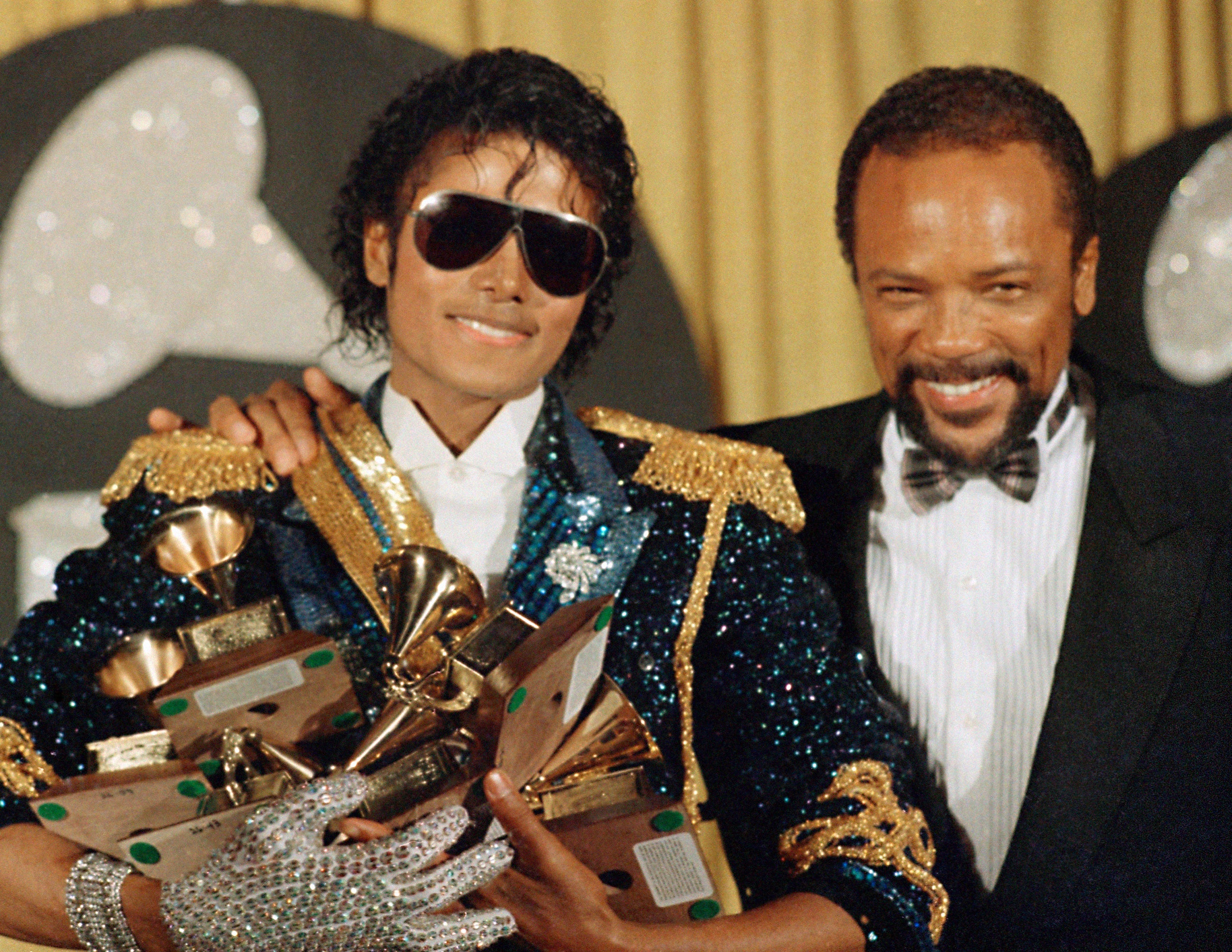
“He stole a lot of songs. [Donna Summer’s] ‘State of Independence’ and ‘Billie Jean’. The notes don’t lie, man. He was as Machiavellian as they come.”
Asked to clarify in what way Jackson was Machiavellian, Jones said: “Greedy, man. Greedy”, going on to recall the making of their early hit “Don’t Stop ’Til You Get Enough”.
“Greg Phillinganes [a studio keyboardist who played on a handful of Jackson’s albums] wrote the c section,” said Jones. “Michael should’ve given him 10 per cent of the song. Wouldn’t do it.”
In the same interview, Jones also recalled complaining to Jackson about his extensive plastic surgery. “He’d always justify it and say it was because of some disease he had,” he said. “Bulls***.”
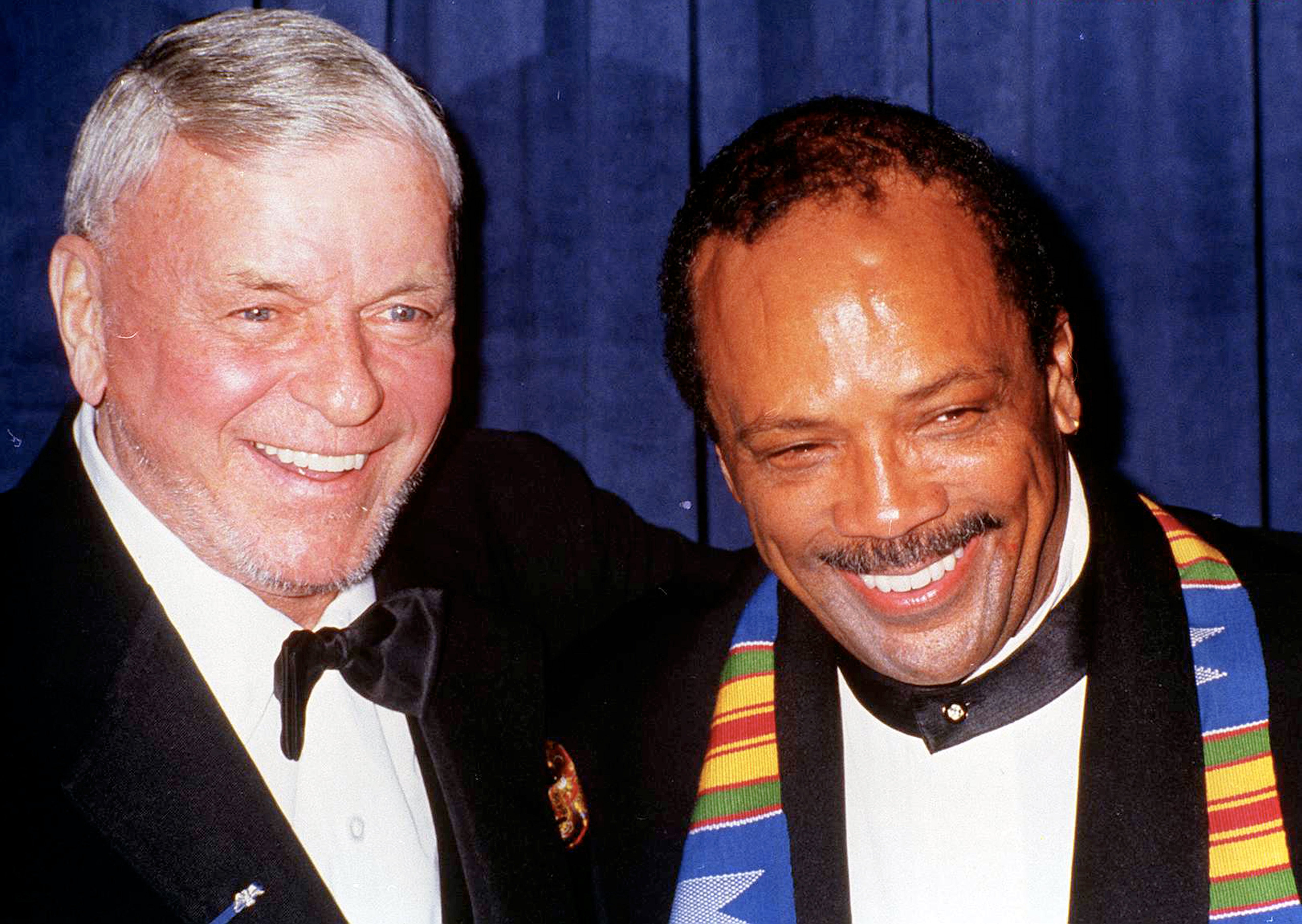
Rather than place the blame for Jackson’s issues with his appearance on fame, Jones said: “He had a problem with his looks because his father told him he was ugly and abused him. What do you expect?”
In a 1993 interview with Oprah and a 2003 interview with Martin Bashir, Jackson described being abused by his father Joe.
In 2003, Joe told Louis Theroux that he used to “whip” Michael when he was a child with a “switch and a belt”, but claimed that this was different from “beating” him. “I never beat him,” he said. “You beat someone with a stick.” He repeated his story to Oprah Winfrey in 2010, stating: “No, I don’t regret it.”
Jackson’s family took umbrage with Jones’s remarks about Jackson stealing songs, with one family member telling Page Six: “He must have the first stages of dementia”.
Joe Jackson, who later died aged 89 in 2018, told the publication that he believed Jones was “quite jealous of Michael because he’s never worked with someone with all of that talent”.
He added that if there is a similarity between Michael and Summer’s songs, Jones is at fault given that he was the producer. Joe, however, reiterated that he believed no part of the song to be lifted.
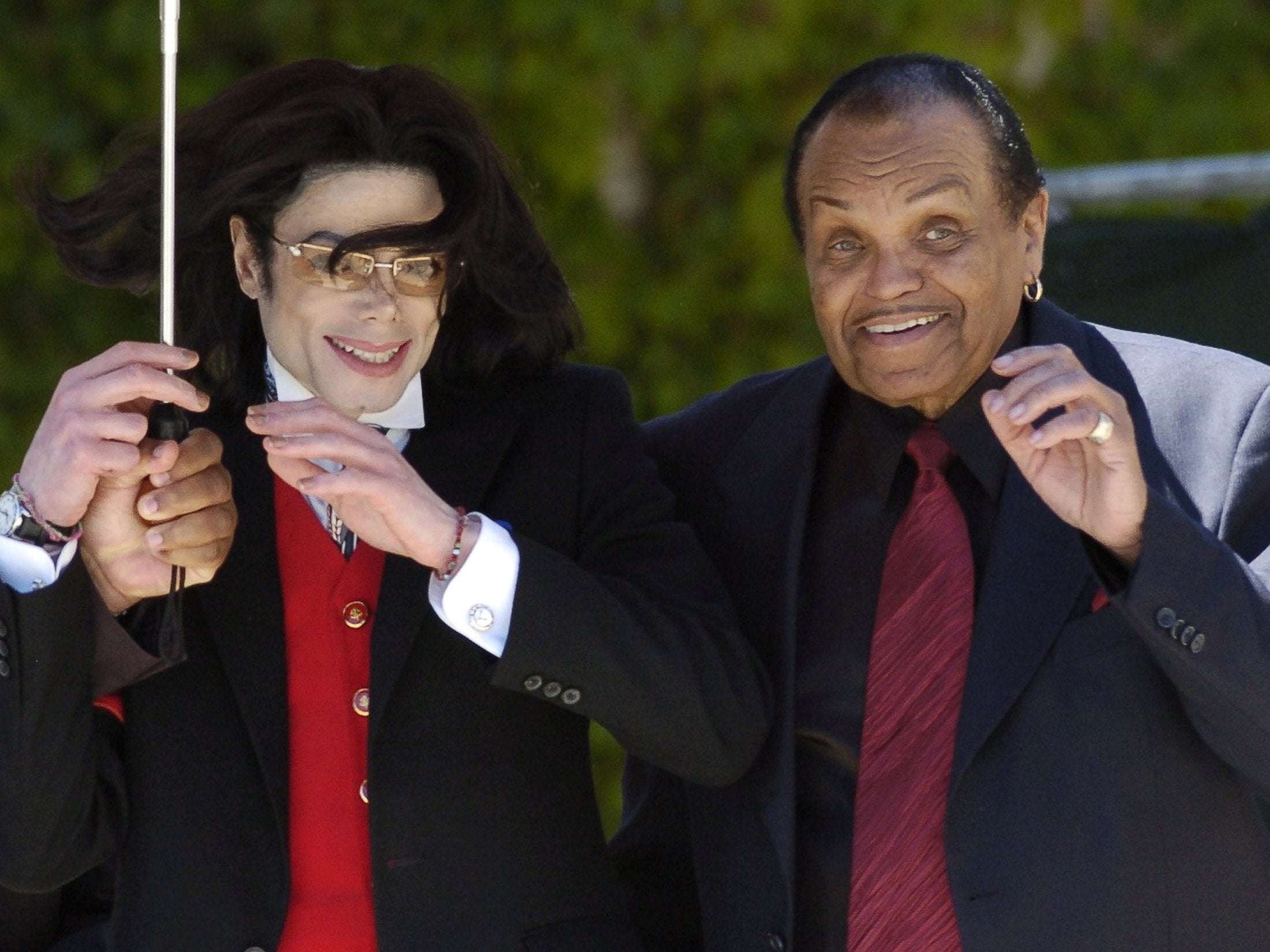
Another relative told the publication that they believed Jones had “quietly carried a vendetta” against Jackson for a while, ever since Jackson allegedly fought to stop Quincy getting a Grammy for his work on Thriller, for which he is credited as the album’s co-producer alongside Jackson.
Bob Jones, Jackson’s late spokesman, wrote in his 2005 memoir: “The King lobbied hard against Quincy getting that Grammy. He didn’t want to share the spotlight with Quincy Jones or anyone else.” Jones ultimately did receive the award.
Although the story is unverified, in his 2001 autobiography Q, Jones did write that those around Jackson felt the producer was getting too much credit.
Years later, in 1987, for reasons still unknown, Jackson decided the title track on his forthcoming Bad album should be a duet with his known rival Prince. Speaking to Page Six, one of Jackson’s family members alleged that it was at Jones’s encouragement that Jackson agreed to the duet despite the pair’s mutual dislike of one another.
Initially Prince was open to the collaboration, but it was soon after killed – though no one knows who by. Prince did, however, make it known that he had a problem with the song’s lyrics.
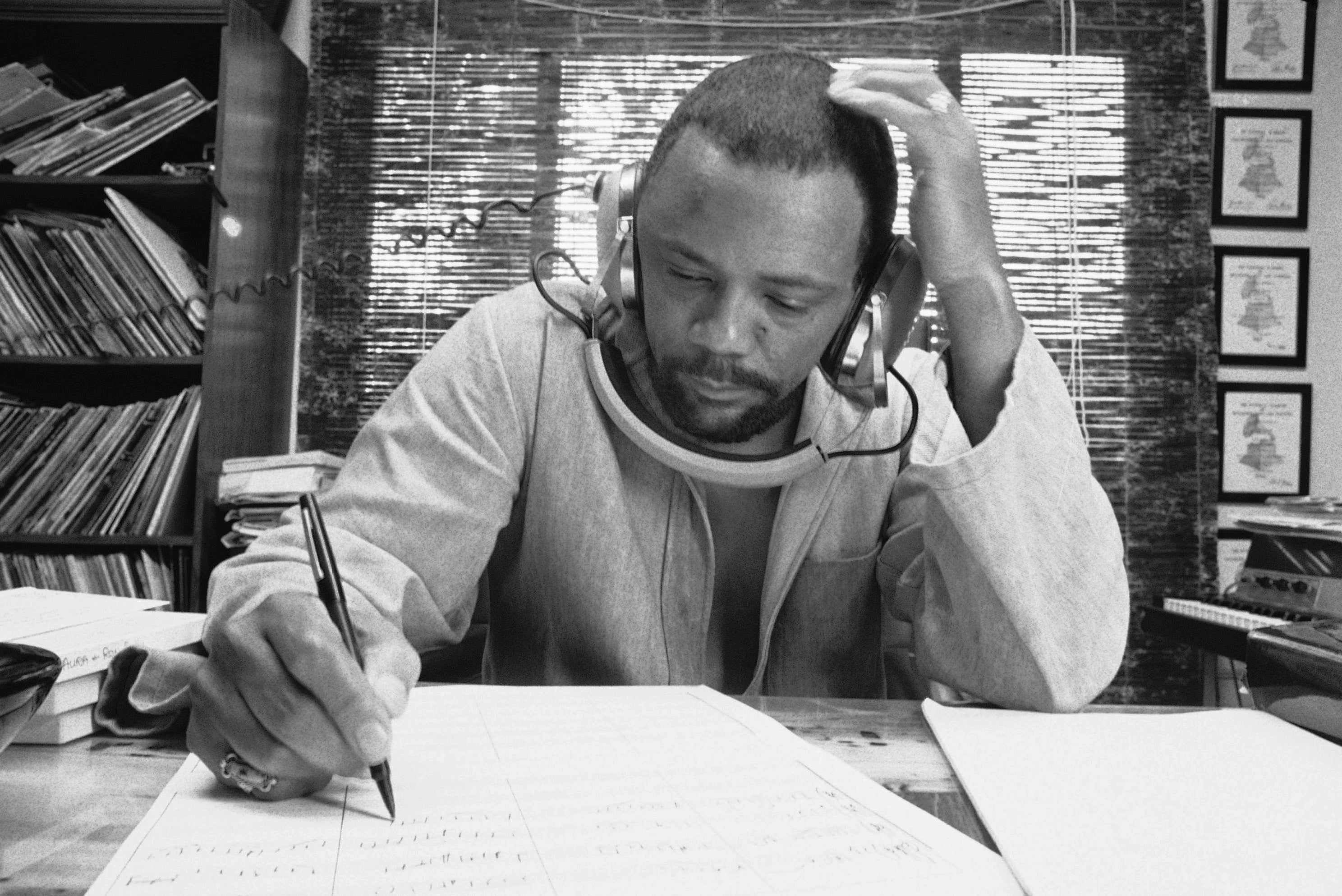
“The first line of that song is ‘Your butt is mine,’” said Prince. “Now I said, ‘Who’s gonna sing that to whom? ’Cause you sure ain’t singing it to me. And I sure ain’t singing it to you, so right there we got a problem.’”
According to Jackson’s relative, the pop star was furious when Prince went public about their almost collaboration. The incident caused damage to Jackson and Jones’ relationship, with the singer’s next album, 1991’s Dangerous, produced instead by Jackson, Teddy Riley, and Bill Bottrell.
In a 2017 interview, however, the producer claimed that they were in a good place before the singer died at age 50.
“He wanted us to get back together,” Jones told The LA Times. “But we were close, man. Always close. You can’t do those kinds of records without love, trust and respect. You can’t do it.”











